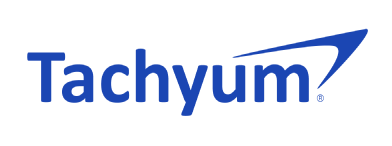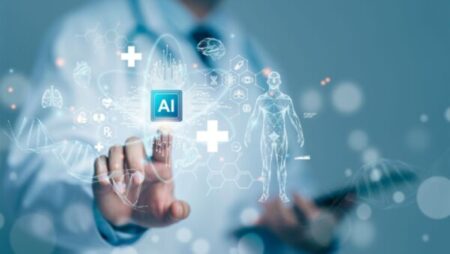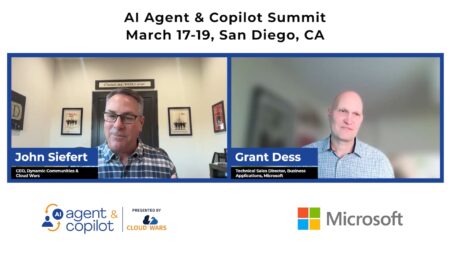Welcome to the AI Ecosystem Report, featuring practitioner analyst and entrepreneur Toni Witt. This series is intended to deliver the timely intelligence about artificial intelligence (AI) you need to get up to speed for an upcoming client engagement or board meeting.
Ask Cloud Wars AI Agent about this analysis
Highlights
Innovation (00:52)

Policy regulation and safety are critical in the AI industry. Launched in December 2023, the AI Alliance is an international community of developers, researchers, and organizations that encourages open, safe, and responsible AI. The alliance promotes open-source technology, foundational models, and innovation in the AI sector. It recently announced the addition of 20 new member organizations, including Databricks, Snowflake, and Uber.
The AI Alliance also announced the launch of two new working groups:
- The AI Safety and Trust Tooling group is focused on creating informational assets that help member organizations navigate AI safety, trust, and ethics. It’s establishing a definitive set of benchmarks and capabilities for testing AI models and applications while ensuring new models, datasets, and more align with the values of their developers.
- The AI Policy Advocacy group gathers technical members with policymakers to encourage discourse through forums and events. It helps policymakers understand information produced by the AI Alliance and new cutting-edge developments.
While we have yet to see the role and full impact of this alliance, it’s certainly moving in the right direction. There needs to be a higher volume of cross-disciplinary and cross-industry collaboration, especially when it comes to AI, to inform policymakers, disseminate information, and ensure AI safety and ethics across organizations.
Funding (03:56)

Organizations and governments across the globe are paying for damages caused by weather and climate change. Swiss startup Jua is working on foundational models to help mitigate the impact of environmental volatility. The startup claims that its model is better, faster, and more computationally effective and efficient than existing legacy systems.
While still in its early stages, Jua raised $16 million in funding. As its first task, Jua is developing machine learning models that predict the weather. Although helping businesses with predictions to mitigate climate volatility’s impact is its first mission, Jua aims to build the first foundational model for the entire physical world.
Solution of the Week (07:50)

Tachyum, a CPU processing and hardware startup, announced its first product: a processor that combines the functionality of a CPU, GPU, and TPU. The demand for specialized hardware, especially used for training machine learning models, is high right now; it’s a very fast-growing market.
The company’s core value proposition is that its processors can switch between different modes of computation, depending on the task it’s given. Tachyum claims that it’s 4.5 times the performance of the best processors for cloud workloads, up to three times better than GPUs for high-performance computing, and six times more effective than GPUs for AI applications.
In general, these chips help data centers be more flexible, increasing usefulness, uptime, and revenue as a result. This processor would replace the need for a lot of data centers to have specialized CPUs and AI-specific hardware. While this product has yet to be released, it will likely be a very disruptive product, as its performance will be an indication of the future of the hardware for data centers.











